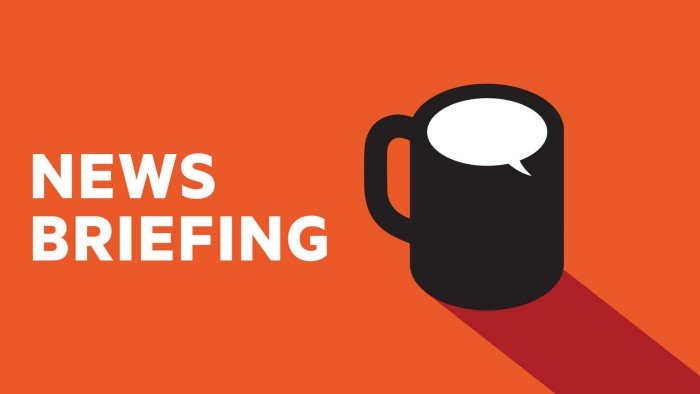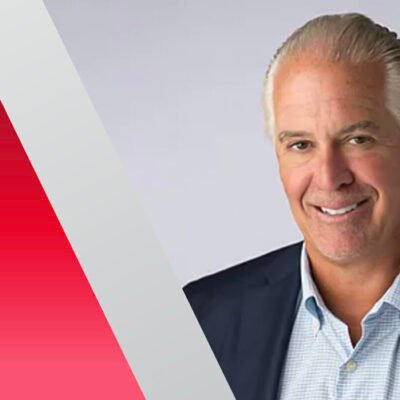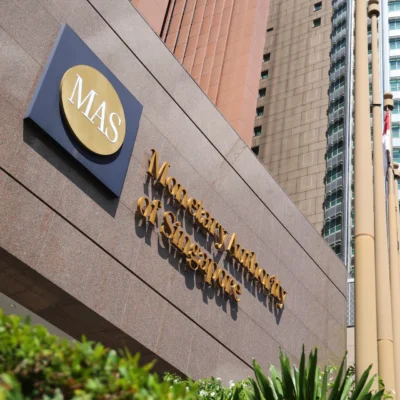This is an audio transcript of the FT News Briefing podcast episode: ‘Are investors starting to prefer Europe over the US?’
Kasia Broussalian
Good morning from the Financial Times. Today is Monday, May 12th, and this is your FT News Briefing.
The US is optimistic about a trade deal with China. And European stocks are outshining their American peers. Plus, Disney seems to be doubling down on theme parks.
Christopher Grimes
This is like building a battleship for the Navy or a new space shuttle for Nasa. So it’s a big moment and it’s a big decision for Disney.
Kasia Broussalian
I’m Kasia Broussalian and here’s the news you need to start your day.
[MUSIC PLAYING]
US Treasury secretary Scott Bessent said that the US had made a lot of progress with Chinese officials during trade talks in Geneva over the weekend, and China’s vice-premier said the meetings were constructive. It’s the first sign that Washington and Beijing might be dialling down tensions. The US has slapped 145 per cent tariffs on Chinese goods, and China has responded with a levy of 125 per cent. That’s really slowed down trade between the world’s two biggest economies. In a statement, Bessent said that more details would be announced this morning.
[MUSIC PLAYING]
Germany’s Dax index reached a record high on Friday. It’s the first major European benchmark to recover from the losses after US President Donald Trump threatened tariffs. Meanwhile, the S&P 500 is still down more than 7 per cent from its peak. Which makes me wonder, are investors starting to prefer Europe over the US? Here to talk to me about it is the FT’s senior markets correspondent, Ian Smith. Hey, Ian.
Ian Smith
Hiya!
Kasia Broussalian
All right, so why did German stocks have such a great day on Friday?
Ian Smith
So what we’ve seen in recent days is a revival in optimism among investors that the world might avert a worst-case scenario on this global trade war that has been launched by Donald Trump. And on Friday, there was news of positive conversations between the US and German leaders, which helped to lift the Germans’ Dax index, its stock index of 40 blue-chip German companies to a record, among a kind of broader rise in stock markets. And that followed the first trade deal being agreed between the UK and the US.
Kasia Broussalian
Well, what about European stocks more broadly? How are they doing compared to the US?
Ian Smith
The story of the year has been outperformance by European equities and the reason for that is that there’s been this growing economic optimism in Europe, particularly due to this vast spending announcement by Germany at the beginning of March, where they announced those ramped-up spending on defence and infrastructure as part of this broader galvanising trend that we’ve seen across Europe, where governments are coming together to say, let’s spend more to defend our economies, and the regions pulling together. That’s created optimism there. And we’ve seen a bit more pessimism in the US about the impact of the trade war on the US domestic economy. So European stocks have done well. German stocks have done especially well, so yet up 18 per cent versus the UK’s FTSE 100 is up about 5 per cent. And this might be a moment where capital might meaningfully be shifting from the US to Europe and there’s been some sign of that in the flows, there’s been some sign of that in currency markets. So this could just be Europe’s moment.
Kasia Broussalian
So we’re talking about what’s happening right now, but is this a long-term trend or is it something that we could maybe see reverse if the US decides to backtrack on tariffs and other policies?
Ian Smith
Yeah, that’s a really interesting question. Europe is very good at disappointing when it comes to this. The revival of Europe and outperformance in Europe is often shortlived. I think what will be key will be whether the productivity challenges faced by the European corporate sector can really be faced up to, whether you see some of the reforms coming through that might create broader European capital markets that might help companies to grow. All these things might help to close that gap that’s opened up in valuations between the US and Europe because that gap has only narrowed a bit this year.
And there are two other really important questions. One is the US-EU trade talks, where they get to and what will be the negotiated outcome between those two major trading partners. And another will be this German spending. How fast does it come through and how quickly can it boost economic growth? Any disappointment on that score could take some of the heat out of this German equity rally that we’ve seen and the broader upswing in European equities.
Kasia Broussalian
Ian Smith is the FT’s senior markets correspondent. Thanks, Ian.
Ian Smith
Thank you.
[MUSIC PLAYING]
Kasia Broussalian
Donald Trump is heading to the Middle East this week. His first stop is Saudi Arabia. Trump will meet with Crown Prince Mohammed bin Salman there tomorrow, and then he’ll head to Qatar and the United Arab Emirates. The trip will be dominated by three I’s. The first is investment. Gulf countries have pledged to spend trillions in the US over the next decade. They’re especially interested in American artificial intelligence and defence tech. The second I is Israel. The war in Gaza has upended Trump’s plan to close a deal that would normalise ties with Arab countries. Saudi Arabia now says that won’t happen until there’s a Palestinian state. And as for that last I, it’s Iran. Saudi Arabia and the UAE backed Trump’s withdrawal from the nuclear deal during his first term, but this time they support a new deal to end the nuclear crisis.
[MUSIC PLAYING]
Donald Trump’s tariffs have Americans worried about their finances. But there’s one thing it seems people just can’t give up — a ride on Space Mountain. Disney reported strong earnings last week, mostly thanks to high ticket sales at its US theme parks. It all gave the company a bit of breathing room. Disney’s share price hasn’t been all that magical lately. Here to hold up the mirror on the wall is the FT’s LA bureau chief, Christopher Grimes. Hey, Chris.
Christopher Grimes
Hi.
Kasia Broussalian
So give me the details on Disney’s financials. What more did the company report last week?
Christopher Grimes
So Disney, it turns out, had a really good quarter. Investors have been a little bit nervous about them for several months for a lot of different reasons. But the streaming business did really well, in part because they had raised prices for Disney+ and Hulu. The theme parks did really well, which was a surprise to a lot of investors because people have been tightening their belts, there’s been a lot concerns about consumer spending, so it was an interesting counter-narrative to what we’ve been hearing and worrying about.
Kasia Broussalian
But like you mentioned, all of this kind of came as a surprise. So take a step back for a minute and tell me why that is.
Christopher Grimes
Disney stock has been under pressure for months and months now. It was down 17 per cent going into this report last week. One of the big problems for Disney is that they are being compared to Netflix all the time, right? So Netflix has been on fire for the last two years and their advertising business and streaming has been going great. They’ve been adding tonnes of subscribers, despite, you know, being a pretty mature service now. If you’re a media investor and you’re trying to decide where you want to put your money, people have been putting it in Netflix. And the reason that Disney has looked not so great is that they still have legacy TV assets. And every quarter, things get worse for TV, right? The question for Disney has been, can the other parts of the business, from streaming and theme parks and its movie business, for instance, can that make up for the loss of the old TV revenue?
Kasia Broussalian
Well, let’s talk a little bit about that. How is Disney chief executive Bob Iger looking to capitalise on last week’s good news from the earnings report?
Christopher Grimes
Well, Iger, when he returned from his brief retirement, I think he looked at the whole portfolio of businesses that Disney has, and he decided to make a really big bet on the experiences business. That means theme parks and it means cruise ships. And he committed $60bn over the next 10 years to build out that theme park business. That was in 2023 when he made that announcement. It’s a tonne of money. They were expanding in California, they’re expanding in Florida, and now they’ve announced for the first time a theme park in the Middle East, in Abu Dhabi. And for Disney to make a decision about a new theme park, this is like building a battleship for the Navy or a new space shuttle for Nasa. So it’s a big moment, and it’s a big decision for Disney, one that they don’t take lightly.
Kasia Broussalian
OK, so the plan is to double down on the Magic Kingdom. But Disney at its heart, like you were talking about, is a media company. So I guess I’m wondering, will it ever be able to catch up to Netflix?
Christopher Grimes
So as we talked about, the streaming business did really well for Disney. It made me think, looking at the numbers, Netflix in the last quarter of last year added 19mn subscribers in a quarter. Disney+ added 2.5mn new customers, and Hulu added 1.4mn new customers. And that’s good. But you think about that Netflix 19mn number, it’s crazy. And I think Disney can compete with Netflix in a broad sense in that it’s a diversified company with lots of great businesses, but it’s tough. Netflix is so far ahead that it’s hard to see any of the old-line media companies really catching up.
Kasia Broussalian
That’s the FT’s Christopher Grimes. Thanks, Chris.
Christopher Grimes
Thank you.
[MUSIC PLAYING]
Kasia Broussalian
You can read more on all of these stories for free when you click the links in our show notes. This has been your daily FT News Briefing. Check back tomorrow for the latest business news.





